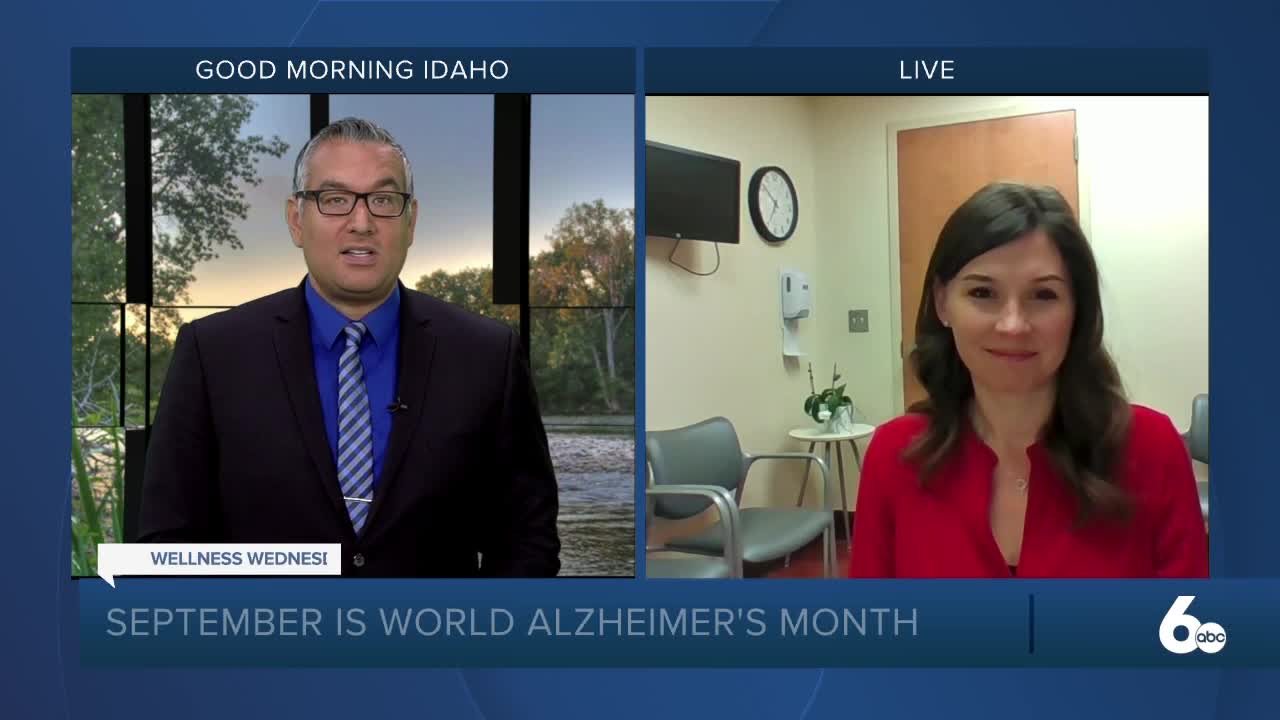IDAHO — September marks World Alzheimer's Month, helping raise awareness and challenge the stigmas surrounding the disease.
Alzheimer's is a neurodegenerative disorder that results in a gradual loss of memory, initially short-term memory, and an ability to do daily tasks that worsens over time. It's one of many types of dementia, along with Lewy body dementia, Parkinson's disease dementia, and others.
Dr. Kara Kuntz, a Geriatrics specialist with Saint Alphonsus, says there are some common warning signs among the dementia types.
"Forgetfulness that affects your daily life, withdrawal from social activities, confusion about time and place, and the list goes on," says Dr. Kuntz.
Right now, there are about 65 million caregivers in the U.S., looking after people with chronic illnesses, including Alzheimer's. Unfortunately, COVID-19 has changed almost every part of our lives, including how we care for those with dementia.
Even without the added stress of a pandemic, the Alzheimer's Association reports 40% of caregivers experience clinical depression during their careers.
"The caregiver role is very challenging and I would first say, most importantly, I would encourage caregivers to realize that they can't do this job alone. It's quite complex and so get help, get some education about it, and also very important to be kind to yourself because this is a long process that can be quite challenging," explains Dr. Kuntz.
There are resources--many of them online and 24/7--available to help caregivers. The Alzheimer's Association offers a helpline as well as local chapters with support groups. The Family Caregiver Alliance is a national group that helps sustain the work of family and friends who care for adult loved ones with disabling health conditions.
Another local group offering help: the Family Caregiver Navigator Program.
"This program will pair caregivers with a navigator that will do an individual assessment, figure out what their needs are, how they can help them either get education, get more help, take better care of themselves," says Dr. Kuntz.
If you have any questions about Alzheimer's or dementia, Dr. Kuntz suggests asking your primary care physician or geriatrician or check out the local Alzheimer's Association chapter.



